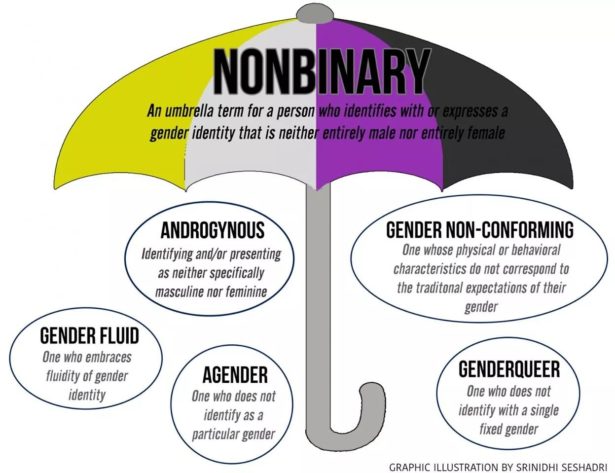


Furthermore, 59% of Gen Zers believe online forms that ask about gender should have gender-neutral options available. While 35% of Gen Zers know someone who uses “they/them” pronouns or something similar, only 25% of Millennials, 16% of Gen Xers, and 12% of Boomers said the same. Gen Z is more accepting of non-binary individuals while and its members expect organizations to step up their inclusivity efforts.Īccording to a May report by Pew Research, members of Gen Z are the generation that is most likely to know someone who uses gender-neutral pronouns. This mostly has to do with sexuality, but what about gender? While the concept of gender fluidity has taken more time to reach mainstream consciousness, the next generation has the potential to bring it to the forefront of our society. In 2020, the 11th annual American Values Survey found 70% of Americans support the right of same-sex couples to wed – an all-time high – and 83% support protecting members of the LGBTQ+ community from discrimination.

The past few decades have significantly changed how people view gender and sexuality. Gen Z Believes the Gender Binary is Outdated The goal of this article is to look at the gender binary and consider how Gen Z views it – and how these beliefs will shape our society in the coming years. Their video team created a segment that looks into how people define gender, the differences between gender and sexuality, and what the gender binary means for different people. To get a better idea of how people approach the gender binary, turn to the Washington Post. Gender spectrum: this is the idea that gender falls on a sliding scale, with everyone resting at different points of the spectrum at various points in life.Your gender does not reflect who you are attracted to romantically or sexually. Sexual orientation: this refers to who you are attracted to.Non-binary is one of the most common terms, but you may meet people who use the words genderqueer, agender, or bigender to describe themselves. Non-binary: this refers to people who don’t identify as male or female or for those whose gender changes over time.This often comes with the idea that your gender is determined at birth. Gender binary: this is the belief that there can only be two genders: male and female.Throughout this article, here is how we define the terms we use: Even well-meaning people can confuse gender-related terms and can potentially say something incorrect or harmful without meaning to. One of the best ways to begin discussions about gender is to start with definitions. Even before they reached their early twenties, this generation was vocal about its beliefs and values.īut what does Gen Z stand for? What do they value – and how can other generations approach them? Let’s look at how the next generation views gender and what it means for gender-fluid people of all ages. Individuals born between 19 are starting to come of age and enter the workforce. Every generation brings societal change and Gen Z is no different.


 0 kommentar(er)
0 kommentar(er)
